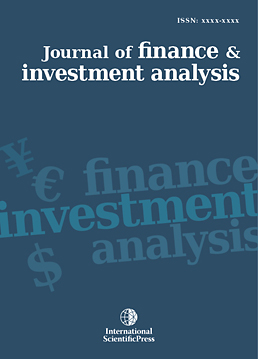Journal of Finance and Investment Analysis
Does Market Innovation Moderate the Association Between Fairtrade Practices and Financial Performance of Certified Small Tea Producer Organizations in Kenya
-
 [ Download ]
[ Download ]
- Times downloaded: 119
Abstract
Tea is a vital cash crop in Kenya, supporting around 560,000 smallholder farmers and significantly contributing to the national economy. Fairtrade certification aims to promote ethical production, equitable compensation, and sustainable development for these farmers. While Fairtrade has improved market access and income stability, recent research highlights on-going challenges, particularly limited adoption of market innovation, which hampers adaptability, competitiveness, and long-term financial sustainability. This study examines how market innovation moderates the relationship between Fairtrade practices and financial performance among certified small tea producer organizations in Kenya. Financial performance was assessed using Return on Assets (ROA), Quick Ratio, Stock Turnover Ratio, and Bonus earnings (Ksh/Kg of Green Leaf). Grounded in integrative social contract theory, the study employed a descriptive cross-sectional design, collecting data from 67 KTDA-affiliated organizations across 17 tea-growing counties. Analysis using SPSS, including ANOVA, revealed that Fairtrade practices significantly improve financial performance, and this effect is strengthened when market innovation such as product diversification, new marketing strategies, and technology adoption is integrated. The findings underscore the importance of combining ethical trade frameworks with innovation to enhance competitiveness and sustainability. The study offers practical insights for stakeholders aiming to support smallholder tea producers through socially equitable and market-responsive strategies.
Keywords: Market Innovation, fairtrade practices, financial performance, Kenya.
